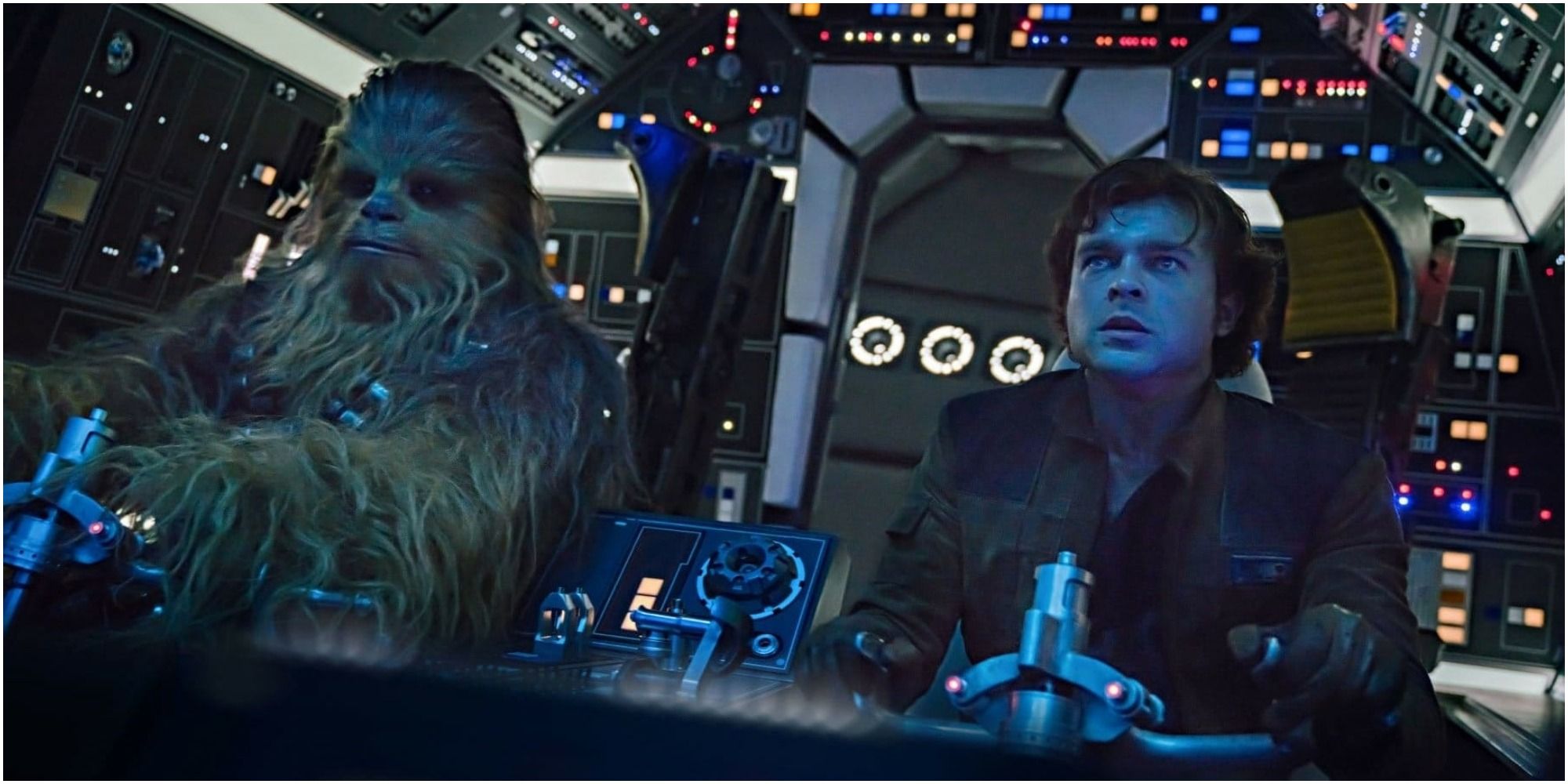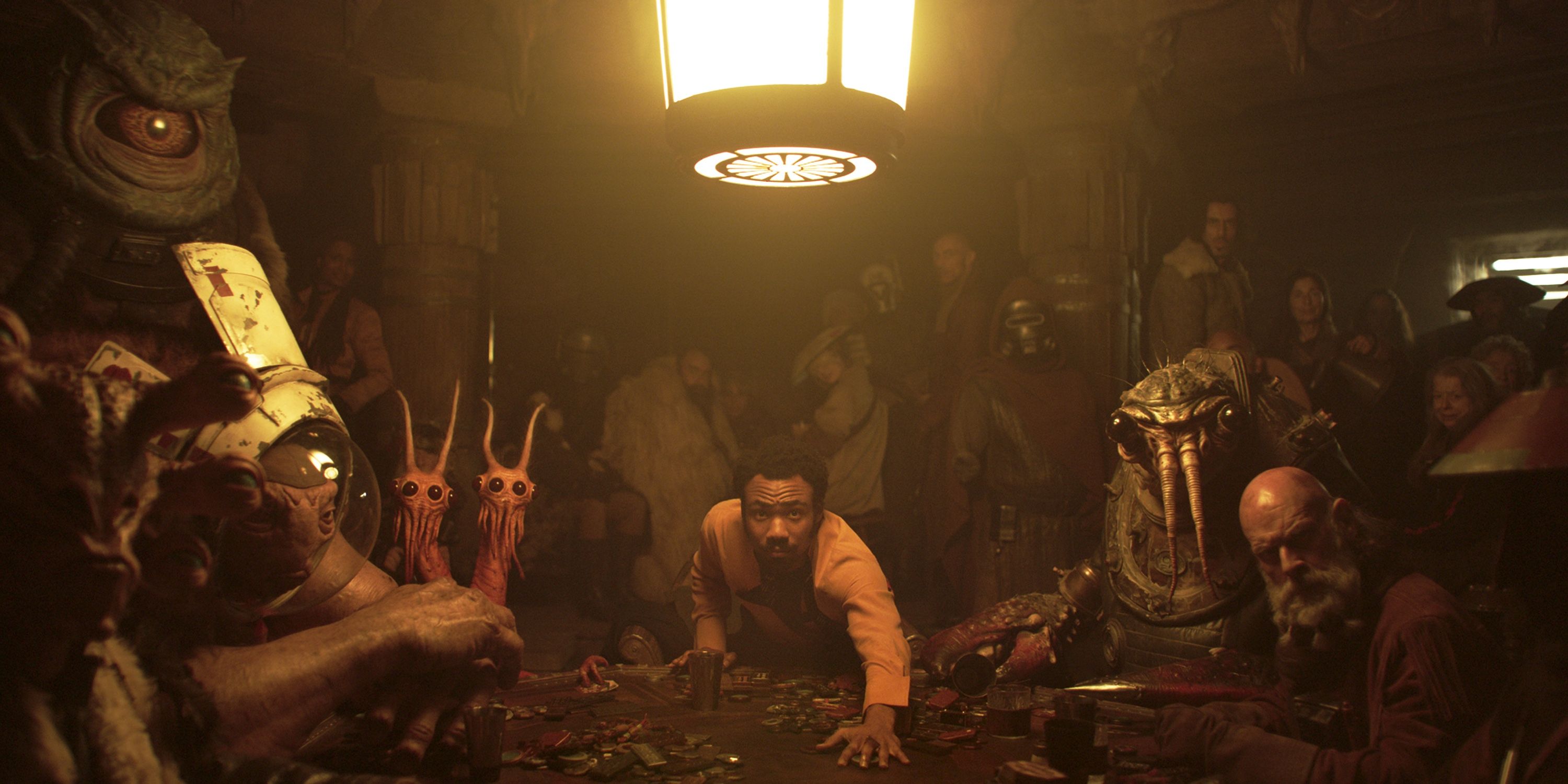Lucasfilm planned for Solo: A Star Wars Story to be the first of many Star Wars films released in May. Prior to being acquired by Disney, the studio traditionally slotted the Star Wars movies in May; the first six installments of the Skywalker saga premiered during the lucrative summer movie season. That changed when the Mouse House relaunched the franchise and The Force Awakens came out in December 2015. Spinoff Rogue One hit the scene the following holiday season, finding great commercial success in that window. Very quickly, audiences became accustomed to a new Star Wars movie debuting around Christmas.
Initially, The Last Jedi was going to debut in May 2017, but Lucasfilm made the decision to reschedule it to December in an attempt to replicate The Force Awakens' release conditions. However, they kept Solo on track for its May 2018 bow - even when it endured severe production woes and Ron Howard replaced Phil Lord & Chris Miller as director. As it turns out, this was part of a strategy to return Star Wars to its old May dates for the foreseeable future.
The book The Art of Star Wars: The Rise of Skywalker includes the tidbit in a passage discussing Star Wars 9's move from May to December 2019. Check it out in the space below:
Solo: A Star Wars Story had been intended to be the first of many Star Wars films to return to the franchise's traditional late-May release date.
It goes without saying this backfired tremendously. Solo was the first Star Wars movie to bomb at the box office, grossing only $392.9 million worldwide. In contrast, the trio of Force Awakens, Rogue One, and Last Jedi all passed the $1 billion mark and were the highest-grossing films domestically in their respective years of release. The Rise of Skywalker's delay to December was necessitated by changes to the creative team (J.J. Abrams replaced Colin Trevorrow as director), but it's possible Lucasfilm would have shifted it any way in response to Solo's commercial failure. The spinoff's underwhelming performance illustrated the franchise was better off sticking to December, where it wouldn't have to compete with other high-profile tentpoles. Besides, fellow Disney property Marvel has had a foothold on May for years, so it makes sense for Disney to space their blockbusters out.
Lucasfilm appears to have learned their lesson. The next three Star Wars movies are scheduled to come out in December 2022-2026, alternating Disney's pre-Christmas window with James Cameron's four Avatar sequels. Historically, that should mean they'll find box office success. Even though The Rise of Skywalker was the lowest-grossing entry in the sequel trilogy, it still made $1 billion globally and turned a nice profit for the studio. The sentiment of seeing Star Wars reestablish itself as a summer movie powerhouse is nice, but Disney has a responsibility to put these films in a position where they can thrive. Instead of being the start of a new trend, Solo ended it on arrival.
Source: The Art of Star Wars: The Rise of Skywalker


